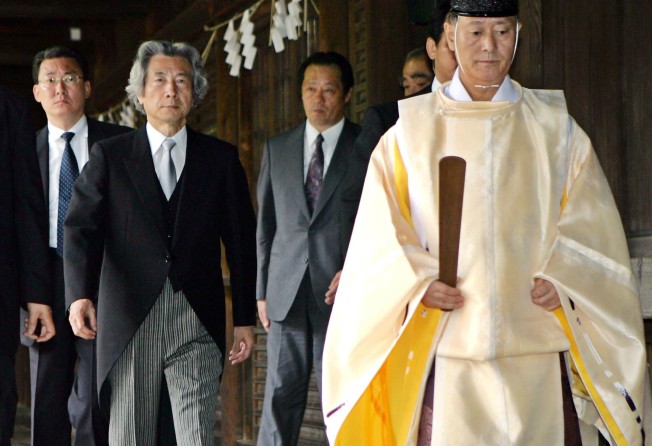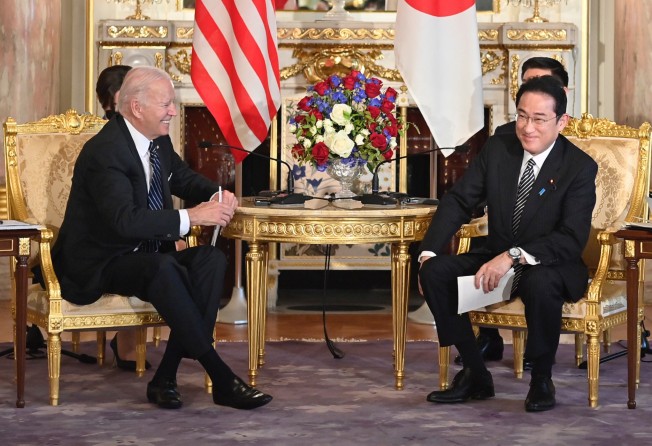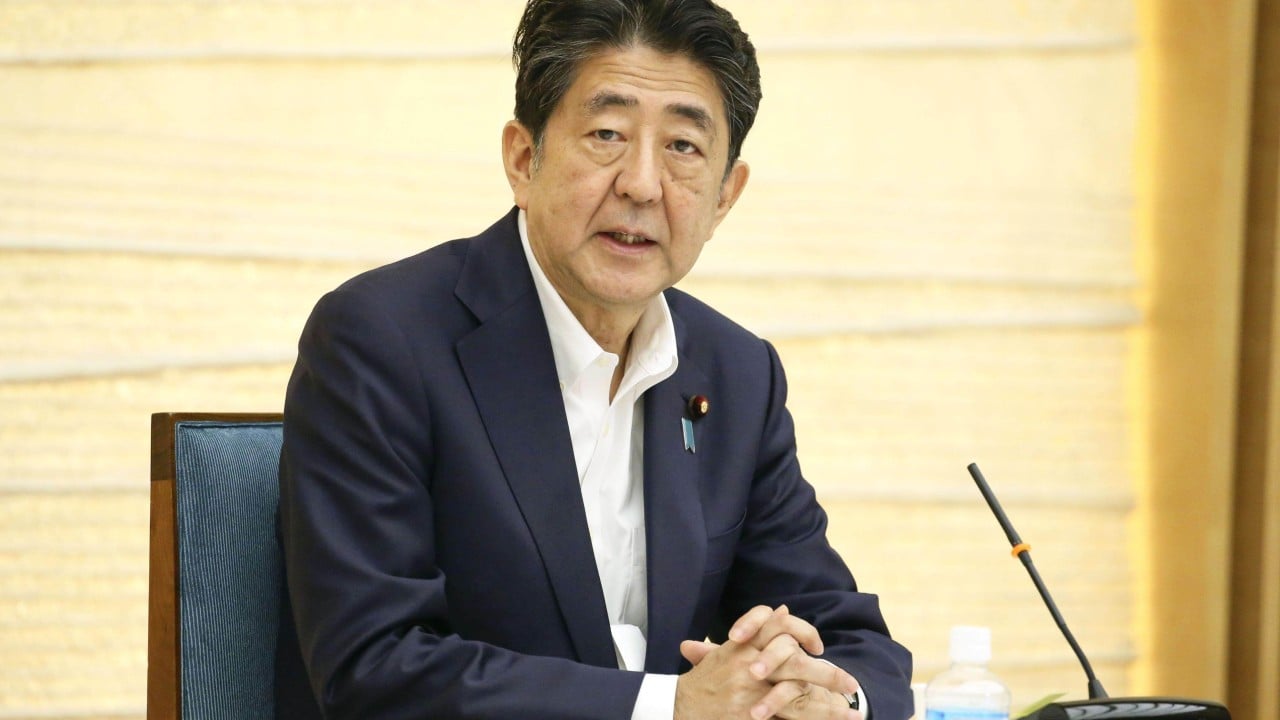
With China-Japan relations at a dismal low, it is clear which side is to blame
- Japan and China have arrived at the 50th anniversary of the normalisation of bilateral ties, but relations are strained
- Given Japan’s stance on cross-strait issues and the Diaoyu Islands, and its long-standing failure to apologise for the Nanking massacre, it isn’t difficult to understand why

September 29 marks the 50th anniversary of the normalisation of Sino-Japanese diplomatic relations. Unfortunately, the outlook for China-Japan relations is bleak at present, from the perspective of both official ties and civilian interactions.
There have been no meetings, either face-to-face or online, between the leaders of China and Japan since the end of 2019. Public perceptions are worsening, especially in Japan.
According to a June poll by the US Pew Research Centre, 87 per cent of Japan’s population view China unfavourably, the highest rate among all 19 sampled nations. Meanwhile, a 2021 survey by China International Publishing Group and Japan’s Genron NPO found that 66 per cent of Chinese interviewees had a negative impression of Japan, yet over 90 per cent of Japanese respondents were averse to China.
Who should assume the bulk of the liability? Let’s review the 1972 Sino-Japanese Joint Communique, a foundational text that set down legal guidelines for bilateral ties. We must ascertain whether the signatories are fully abiding by these principles.
The communique states that “the Japanese side is keenly conscious of the responsibility for the serious damage Japan caused in the past to Chinese people through war, and deeply reproaches itself”. However, Tokyo has not yet issued a formal apology to the victims of the Nanking massacre, which took place in the Chinese city now called Nanjing.
In 1985, then-prime minister Yasuhiro Nakasone’s visit to the notorious Yasukuni Shrine, where 14 class-A war criminals are honoured, established a precedent for his successors. Ryutaro Hashimoto, Junichiro Koizumi and Shinzo Abe subsequently paid visits to the shrine while in office.

Abe visited again in 2021 as chairman of the Liberal Democratic Party’s Seiwa Policy Research Council, a faction that has considerable clout over the government. How can such actions be consistent with a country that “deeply reproaches itself”?
According to the communique, Japan “recognises the Government of the People’s Republic of China as the sole legal government of China” and “fully understands and respects” its stance that Taiwan is an inalienable part of the territory of the PRC. But this hasn’t stopped Japan repeatedly inciting China over the Taiwan question.
In a speech to parliament in June 2021, then deputy defence minister Yasuhide Nakayama asserted that Taiwan is a “democratic country” deserving of Japan’s protection. In December, Abe declared that “if something happens to Taiwan, it means something happens to the Japan”.
It was even reported in June that Tokyo planned to dispatch defence ministry officials to the Japan-Taiwan Exchange Association, Japan’s de facto embassy in Taiwan. The actions trample on the one-China policy which implies no support for Taiwan independence.
In the communique, Japan reaffirms its adherence to Article 8 of the Potsdam Declaration, under which all the territories it stole from China shall be restored, and Japanese sovereignty is to be limited to Honshu, Hokkaido, Kyushu, Shikoku and any other minor islands determined by the Allies.
With the landing of the Japanese on the Diaoyu Islands, plus the farcical plan to nationalise the islands in 2012, Japan has not only violated this principle but also broken its promise to “put disputes aside”.
In addition, the communique says both sides “shall settle all disputes by peaceful means and refrain from the use or threat of force”. But from Abe’s repeal of the ban on collective self-defence to current Prime Minister Fumio Kishida’s call to amend the country’s pacifist constitution, Japan’s attempts to accelerate its militarisation are impossible to ignore.
Recently, Tokyo has been consolidating its alliance with Washington to combat the “China threat”, a concept emphasised in its most recent defence white paper released in July. The Liberal Democratic Party has even called for Japan to acquire the ability to strike an enemy base.

In contrast, China strictly abides by the principles of the 1972 communique, despite being the primary victim of Japan’s World War II invasions. After the war, China not only waived all reparations claims but has implemented beneficial policies to attract Japanese investment.
In fact, China could counter Japan’s seeming support for Taiwan independence by endorsing the independence movement in Okinawa. Considering the might of the People’s Liberation Army, it could conduct military operations on the Diaoyu Islands. But it never has.
Instead, Beijing has always exercised restraint and sought to resolve conflicts through dialogue. It has striven to achieve common peace and prosperity. Yet Japan seems to take China’s kindness for granted.
With the gradual infiltration of right-wing forces into Japanese politics, the ominous shadow of militarism and abject disrespect for China’s core interests, Japan is low on both sincerity and strategic credibility.
It is Japan that must therefore bear most of the blame for its deteriorating relations with China. Considering Abe’s death was cause for celebration for some in China, Japan is in need of some deep self-reflection.
Admittedly, as the world’s third-largest economy, Japan remains competitive in a variety of sectors, including the automobile and semiconductor industries. Additionally, China and Japan are major trade partners. Sino-Japanese relations still matter. However, China may need to alter its policy towards Japan so as to make it shoulder the cost of defaulting.
Chengxin Zhang is a doctoral candidate at the School of Politics and International Relations of Lanzhou University, China, and a researcher at the Youth Think-Tank of The Glory Diplomacy of China
